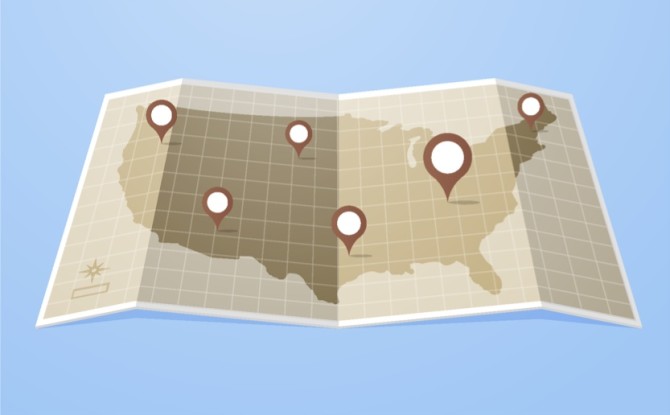The challenges involved in starting a small business are numerous. One that may not immediately come to mind is location, and we don’t mean what part of town the business is located. Each state has its own systems, rules and regulations, and it’s important to be familiar with the facts before launching a small business.
For the fourth year, Thumbtack has conducted its Small Business Friendliness Survey. Almost 18,000 small business owners participated in the survey. Jon Lieber, Thumbtack’s chief economist, says small business owners “have consistently told us that they welcome support from their government but are frequently frustrated by unnecessary bureaucratic obstacles. Given that there is a crisis of entrepreneurship in the United States, seen in the broad collapse of self-employment across industries and states, creating the right environment for business startups is more important than ever.”
Here’s a look at two states that get high marks for small businesses in the Thumbtack survey, and two that fail.
Texas: The state gets A+ marks for overall friendliness, ease of starting a business, regulations, tax code, licensing, zoning, and employment, labor and hiring. In fact, the only category in which Texas gets less than an A grade is ease of hiring — and the state still earns a B in that one.
Quotable, from a Houston architect: “Texas is a great place to start a service-based business. There are plenty of opportunities for small businesses to thrive. Filling out the required forms is just a few clicks away. However, one must check the tax laws as to which types of business require sales tax. A knowledgeable accountant along with information from the state agencies’ websites may help.”
Colorado: The state gets an A for overall friendliness, an A+ for ease of starting a business and an A for training and networking programs. The lower scores are Cs for ease of hiring and zoning, and C+ marks in regulations, tax code and environmental.
Quotable, from a Castle Rock designer: “My city council likes to promote small businesses and Colorado does not discourage it. They’ve put together easy-to-use websites that make filing to open a business a pleasant experience.”
California: The state gets an F for overall friendliness, ease of starting a business, regulations, tax code, licensing, environmental, and employment, labor and hiring. The state gets no grade higher than a C, in ease of hiring.
Quotable, from a San Diego contractor: “It is very difficult to do business in Southern California. It is very difficult to compete because regulations become more stringent and the number of unlicensed and uninsured businesses continues to grow. More of our competitors are firing their employees and subcontracting exclusively.”
Rhode Island: The state gets an F for overall friendliness, and more F marks for ease of starting a business, regulations, tax code, licensing and zoning. The lone high marks the state receives are an A- in ease of hiring and a B- in training and networking programs.
Quotable, from a Providence caterer: “My business is so small that the state doesn’t even recognize it as small business. I am severely over-taxed and not supported at all excluding roads, which I do use. It was very hard to find out all of the different licenses needed and each state department thinks that they have to be notified first, so you get sent in circles.”

